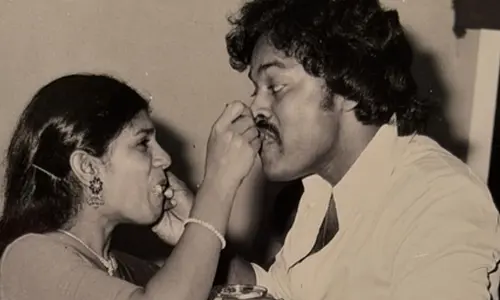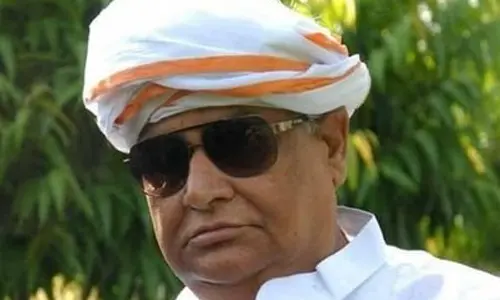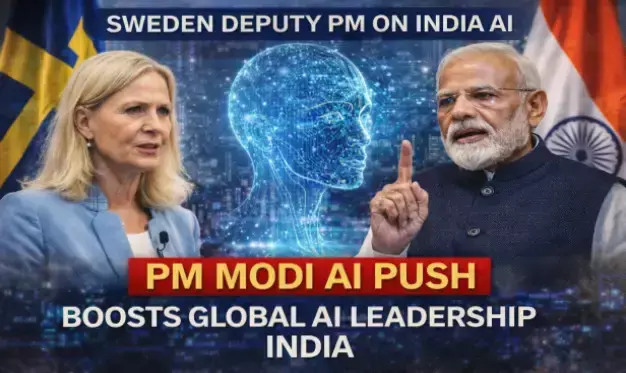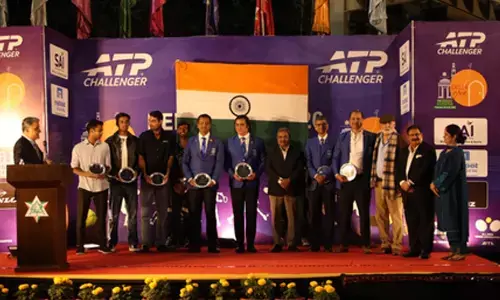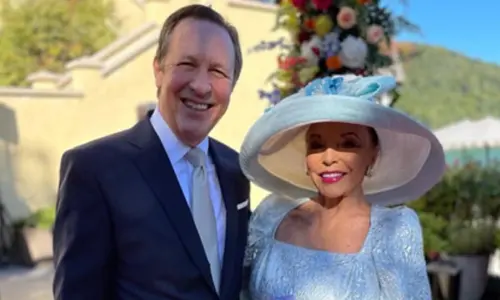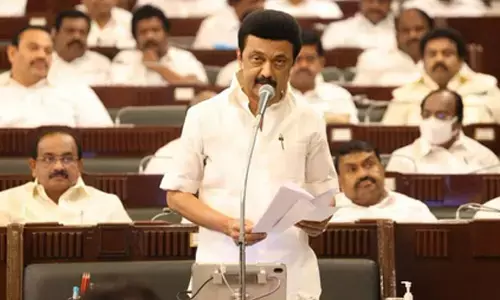MyVoice: Views of our readers 17th September 2023
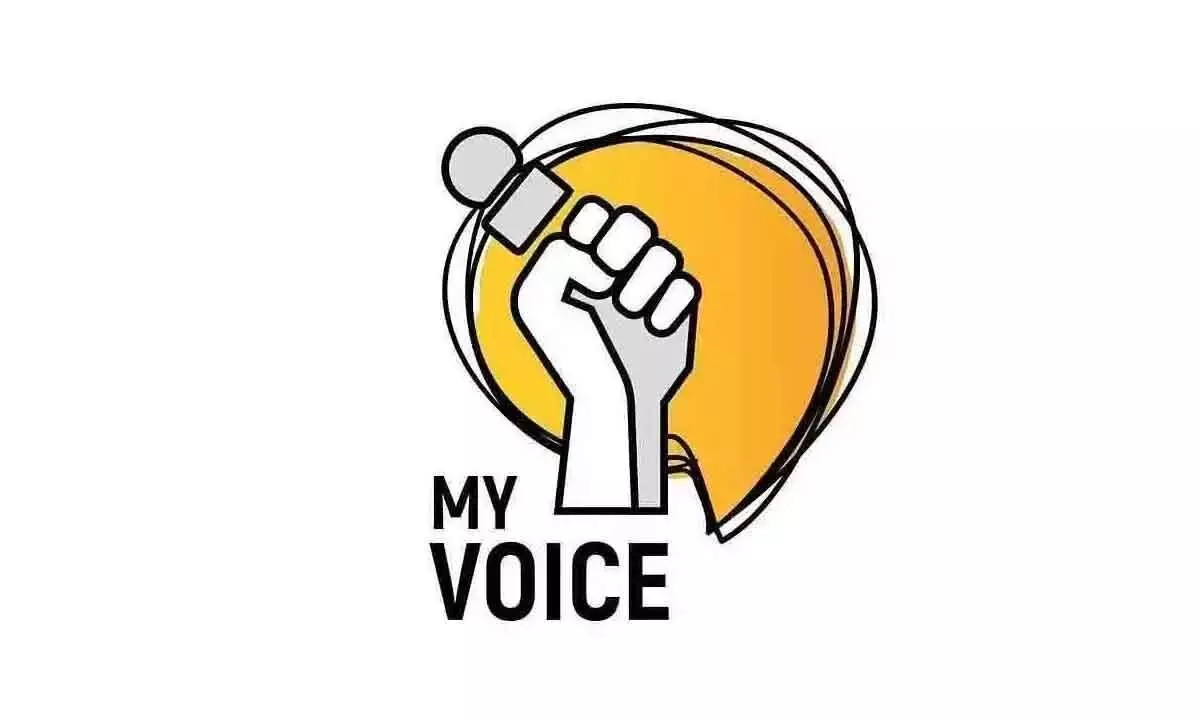
MyVoice: Views of our readers 16th February 2026
The call by the I.N.D.I.A alliance to boycott select anchors belonging to certain news channels shows their desperation and regressive mindset
Why I.N.D.I.A chose to boycott news anchors
The call by the I.N.D.I.A alliance to boycott select anchors belonging to certain news channels shows their desperation and regressive mindset. In a democracy, everyone has the right to speech and right to freedom of expression. Our journalists and news anchors should be given the liberty and freedom to expose the truth. By freedom of press we mean certain hard facts and stark realities should be brought forth by both the print and the television media. Boycotting certain news anchors will not serve the Opposition in any way. Rather the Opposition should use these platforms to voice their concerns and opinions as the debates provide them an opportunity to prove their point. Now with no representatives from the opposition in the debates, their opinions will go unheard. The opposition alleges that the select news anchors indulge in spreading communal and polarising views. Have not several opposition leaders indulged in hate speeches with communal overtones, with their spiteful remarks on our PM before? I.N.D.I.A alliance should explore more ways of making inroads and connecting with the common man rather than blacklisting certain TV anchors.
– Parimala G Tadas, Hyderabad
***
It must be very rare for the media to choose to question the opposition rather than the government. The same people who are now crying out were silent when the BJP refused to appear on NDTV since seven years. And it is not as if the INDIA group is refusing to come on their channels, they are only not willing to engage with the 14 anchors.
The constant Hindu Muslim narrative has caused high toxicity among those who are susceptible to such messaging. The shooting of Muslim men in a train for no apparent reason other than their religious identity is the result of such poisonous indoctrination. Some of the anchors mentioned are serial offenders. Purveyors of fake news or incomplete information is one of their methods to pin the opposition on the back foot.
India was at a miserly 161st position on the press free freedom index. This was not due to the opposition.
There have been several instances when the central government has used all its powers to incarcerate journalists like Siddiqui Kappan for 28 months. The FIR against the members of the Editors Guild, too, were filed after their reports on their fact finding in Manipur. Most of those who are complaining have lost all journalistic integrity. That is the reason why the Youtubers have become more popular than the anchors of mainstream TV. Many of these Youtubers have been sacked from their channels for daring to question this government. Never have the boycotted anchors questioned the government either about Manipur, Pulwama, Adani or China. This itself should end all doubts about their journalistic integrity.
– Anthony Henriques, Mumbai
***
This decision reflects INDIA’s long-standing discontent with what they perceive as a media bias in favour of the ruling BJP, an issue that has occasionally led to these anchors being referred to as “Modia” by certain opposition leaders. There is no space for blacklists in a democracy, all they do is mark out targets for the mob of your choice. Having made a mistake, the Opposition alliance must waste no time in undoing it. It must keep raising the very valid issue of why citizens in the world’s largest democracy need — and deserve — better than anchors with a hateful tongue, on bended knee. But to do this effectively, it must withdraw its motion.
– Yash Pal Ralhan, Jalandhar
***
The narrow-minded decision taken by the newly formed ragtag INDIA alliance to boycott the journalists who are not favorable to them causes more harm to them than the select journalists who are in fact the voice of the media houses/owners. It is obviously foolish to boycott the journalists as they are only employees of the cash-rich media houses being run by politicians and other foreign funded groups. If there is any sense, they have to shun the media houses and not the journalists working for the commercially established electronic channels, the employees generally reflect the voice of the owners of the media house and they have no opinion of their own. We know the authoritarian past history of Congress. How the ’National Herald’ then the mouth piece of Congress was run by Nehru and how it’s most respected editor Chalapathi Row was unceremoniously kicked out and at the fag-end of his life, Rao had to die unknown and unheard of, for the crude treatment given to him. What right they have to comment on the journalists for the bias shown by them? ‘It’s like kettle calling pot black’.
– Rama Krishna M, Kakinada
***
The complaining group often forgets that uneasy and difficult questions are also posed to the BJP spokespersons too. The viewing public is ultimate judge, in separating chaff from the grain, assessing the sincerity and intention of such debates. The Congress and AAP are overtly careful before the media lest their true intentions be exposed. They make every effort to prove their point by beating around the bush, by missing out the core issue on which the debate is centred. The viewing public can easily see through such painstaking efforts, detours and distractions made by them. It is beyond doubt that the 26 or 28 group that is feverishly working against the country; and the ruling BJP; can go to any extent to come to power that is not in the interest of the country. The incipient gene of ‘emergency’ that is still lurking in the psyche of these proponents for whom wrecking the nation is fair bet, be it in the name of Sanatan or open pampering to the minorities at cost of majority, is definitely fraught with grave foreboding to India that is Bharat, in effectively nullifying the progress and achievement made by the nation so far.
– S Lakshmi, Hyderabad
Weak arguments to push for ‘One Poll’
It looks like the developments in terms of people gaining better clarity in understanding the moves of the government, hostile mood of the voters and formation of a new alliance by the opposition parties are plunging the ruling party at the centre in a sort of apprehension about emerging successful in the coming elections. There are also serious issues on which either the government doesn't have clue or is wantonly turning Nelson's eye to.
Manipur needs urgently an administrative set up as the present one has proved its lack of capacity to address the seriously hostile and unpleasant developments taking place there since months. Reports about Adani's financial dealings are serious in nature and he being seen as a pampered boy of the ruling dispensation needs protection cover from criticisms and pressure for action. CAG reports are widely occupying space in social media that question the very puritan image of the government. Keeping the attention of the people is imminent for the ruling dispensation.
Against this background the government, as usual, has proposed its serious consideration of one of its ideological agenda of implementing simultaneous election for the Parliament and the State Assemblies. The supportive points being pushed forward are corruption, expenditure and development activities being paused due to intervening elections. But, in fact, none of them carries any sort of relevance to this subject.
Many known corrupt figures are found joining political party where they feel insulated from the wrath of the agencies concerned. It is like taking a dip in the holy Ganges to redeem of all sins. By merely changing the schedule of elections corruption cannot be eradicated. Expenditure incurred in conducting multiple elections in multiple schedule should not be seen from mere financial angle. But it should be seen as an inevitable activity that keeps democracy alive. Moreover for a country that boasts of being the third largest economy in the world and going by the affordability of the government to waive off and write off so many lakh of crores of huge loans availed but not repaid by corporate and the affluent the expenditure to hold elections cannot be an issue at all.
In election to Parliament the points being considered are of national issues. Whereas in the election to a State assembly exclusively the issues concerning the State are the focal points.
Ongoing developmental projects are not stopped during election. The restriction is that after the issuance of election notification new projects cannot be announced or taken up. That too it is a matter of just 45 days pause.
We do need electoral reforms but simultaneous election is nor a reform and it is only a matter of scheduling of elections. It is better not to hurry and push through with the strength in House. Strengthening democracy more is important.
– A G Rajmohan, Anantapur
Modi’s predecessors laid stone for Make in India
Kudos to the editorial "Putin praise vindicates PM's Make-India thrust" (14 Sept). It is heartening to witness Russia, under the leadership of Putin, striving to emulate India. The politics behind Putin's commendation and the ruling party led by PM Modi going gaga over it is another matter altogether.
However, presenting the so-called "Making in India" (or Gandhi's Swadeshi Movement) as something novel is not entirely accurate. Every country champions local production and consumption; India, led by PM Modi, is no exception. In the past, which leader did not encourage "Make in India"? Due to a lack of resources, collaboration with other countries was deemed necessary for expedited development. Nevertheless, over 75 years since independence, our country has managed to stand on its own two feet; initiatives such as the green revolution were significant strides towards Making in India. When PM Modi assumed office in 2014 – during our nation's sixty-seventh year of self-rule – he had a solid foundation from which he could build upon and present Make in India as something new for those born after independence.
Whenever I read about "Make in India," I am reminded that several business houses have successfully transitioned into this mode of production: Tatas, Birlas, Bajaj's and many others were highly focused on Making in India. Even beyond manufacturing sectors but within the education sector too; Orient BlackSwan - celebrating its 75th year as an Indian entity - stands out among them. This publishing house was originally established by Longman Group back when they entered into book trading within Indian shores way back in 1895! After Independence, Longman established their Indian company called Orient Longman back then in 1948.
The Raja of Wanaparthy at that time who later became diplomat & MP Rameshwar Rao took charge of the company from early ’60s onwards transforming it completely into an Indian publisher where English Language Teaching books series like “Gulmohar Graded English Course” authored by Indians started getting published from mid ’70s onward starting with first few grades getting introduced around ‘74 thereby revolutionising school textbooks market for good. No wonder, Telangana Postal Circle recently released commemorative special cover, honoring Orient Black Swan’s 75th anniversary along with Gulmohar Graded English Series’ 50th year in 2024 – rare honour indeed!
Thus one can see how visionary leaders always had a concept akin to Make In India much before it got popularized now under the current dispensation headed by PM Modi who rightly deserves appreciation for giving more impetus than ever before!
– N Nagarajan, Hyderabad
A great initiative to prevent suicides
Kudos to The Hans India and its dedicated, responsible team for having organised successfully the marathon run in Hyderabad on September 10 to create awareness in people, especially youth, about the value of life in the wake of a large number of suicides committed by youth in schools, colleges and universities.
It's heartening to know that thousands of people from all spheres of life, irrespective of age, gender, community, religion and social and position, participated so enthusiastically in the marathon run and made it a spectacular success, driving home the profound message that life is the most precious boon offered to humans so kindly and generously by God and to end life is meaningless and serves no purpose.
Nowadays, hardly a day passes without the media reporting suicides of the young. Mounting academic pressure, failures in examinations, in getting employment, love and marriage are the main reasons that drive the youth to resort to the extreme step of ending their lives. With no access to games, entertainment, cultural and creative activities and with no outlets for their inherent talents, youth are crushed under the tremendous burden of academic pressure.
Most of our youth, though educated, intelligent and knowledgeable, cannot handle challenges of life and face adversities due to lack of will-power, self-confidence and courage. Depressed, despaired, discontented and disillusioned, they unfortunately fall victims to suicidal tendencies. So they need to realise the value of life.
Life-lessons from lives of great people like Gandhiji, Shastriji, Kalam , Vivekananda and Helen Keller need to be incorporated in the curriculum of our school and college-education apart from motivational speeches with focus on personality development from eminent.
People in varied fields to help our youth to steer their lives on positive path to realise their aspirations and goals.
If a tree is cut down, it doesn't die instantly, for it refuses to end its life. In a few days, it's renewed life springs out amazingly with a tiny branch, bearing a cluster of green leaves from its cut-trunk. Is it not the life-lesson about the value of life that Mother Nature teaches and enlightens us? Let our youth be physically strong and mentally sound, getting rid of negative thoughts and suicide tendencies and live happily, peacefully, purposefully and fruitfully.
Here, I present my poem "Beauty of Life" from my book of poems, ‘Ripples and Reflections,’ that depicts the value and beauty of life:
“A plant shooting/ Out of a tiny crevice/ Of a ruined wall/ Of a dilapidated house,/ Flashing flowers/ Of flaming yellow amidst ruins,/ Greeting all beholders,/ Declaring its presence,/ Demonstrating persistence of life/Amidst many odds /Against adverse circumstances,/ Singing in silence/ The rapturous lyric/ Of the beauty of life,/ Exposing the folly,/ Ridiculing the ignorance of the man /Who failed to understand / The value of life,/ committed suicide/ In the neighbouring house."
– Dr Venugopala Rao Kaki, Kakinada
New tactics by terrorists
After a lull, Pakistani trained and sponsored terrorists are back to the evil ways by changing the tactics. Killing brutally three Army and a J&K police personnel in the valley is a serious matter which appears a clear sign of new challenges emerging in the area of terror activities. Despite the vastly improved security situation in J&K, Pakistan-based terrorists are constantly involved in a spate of targeted killings by changing their tactics to outfox security forces is causing a serious concerned. Given the growing problem in Pakistan politics, the Pakistani deep state stepping up terror activities in the valley in order to divert the attention, India cannot be complacent any more. On the contrary, India need to be attentive by adopting greater flexibility to counter terror operations effectively so that the success achieved so far in Kashmir do not go waste.
– K R Srinivasan, Secunderabad
Parroting western theories to mock at Indian values
Further to the thought-provoking article 'Maligning the media is not Samabhav' (THI, 16th September 2023), when 26 parties come together with a single agenda of defeating the party in power, one wonders at the idea of a multi-party democracy itself. Each party supposedly has a unique approach to improving the lot of the people. Ananda Coomaraswamy called democracy finally a 'tyranny' of the majority, where the defeated are always unhappy. Sri Aurobindo was not in favour of the blindly adopted Westminster model of parliamentary democracy at the time of independence.
Indian traditions had free citizens and more unity across Bharatvarsha under an ‘enlightened monarchy.’ The bedrock of Indian polity was the three quartets, according to both Coomaraswamy and Aurobindo: the four varnas, the four ashramas, and the four purusharthas. The duty of the king and the state was to give protection to these quartets. The highest ideal of the nation was moksha, and this was achievable by any person within the duty-bound framework of his or her own varna dharma.
Untouchability and other detestable social practices were weeds, typical of any society or culture across the world. These needed removal in the best possible manner, but it does not mandate dismantling the whole structure of Sanatana dharma as some are keen to suggest.
Indian traditions focused on qualities and duties at all levels, from the king to the ordinary citizen, unlike Western ‘rights-based’ traditions. The kinds of wars fought in Europe in mediaeval times were perhaps unusual in the Indian context. Indian wars, by principle, mostly left the agricultural lands and the temples intact. A bond linking rulers and people across kingdoms allowed free movement for pilgrimages and access to knowledge. Shankaracharya could raise the four mathas in four corners of the country. Hence, alternatives to democracy thrived without affecting trade, agriculture, literature, or the sciences across the country.
Indian civilization, at least 5,000 years old, apart from a high quotient of personal happiness, had a thriving economy with highly evolved arts, literature, education, sciences, spirituality, architecture, and so on. Our indigenous systems had some worth, as their outcomes certainly attracted thousands from Central Asia, the Middle East, and Europe.
The antipathy and the failure to look at Indian traditions have been dominant in the ‘modernity’ narratives of academia, the media, and political theorists, where the past is always primitive. Instead of parroting western theories, our social sciences can look at our past to come up with better theories for governance. The proof of traditional models is the immense success and survival of the great Indian civilization. Traditions are not fossilised items, and they have immense flexibility to offer solutions for any period. However, is there any hope for a change as 'liberal democracy' has become the norm for all countries despite so many problems?
– Dr Pingali Gopal, Hanamkonda


